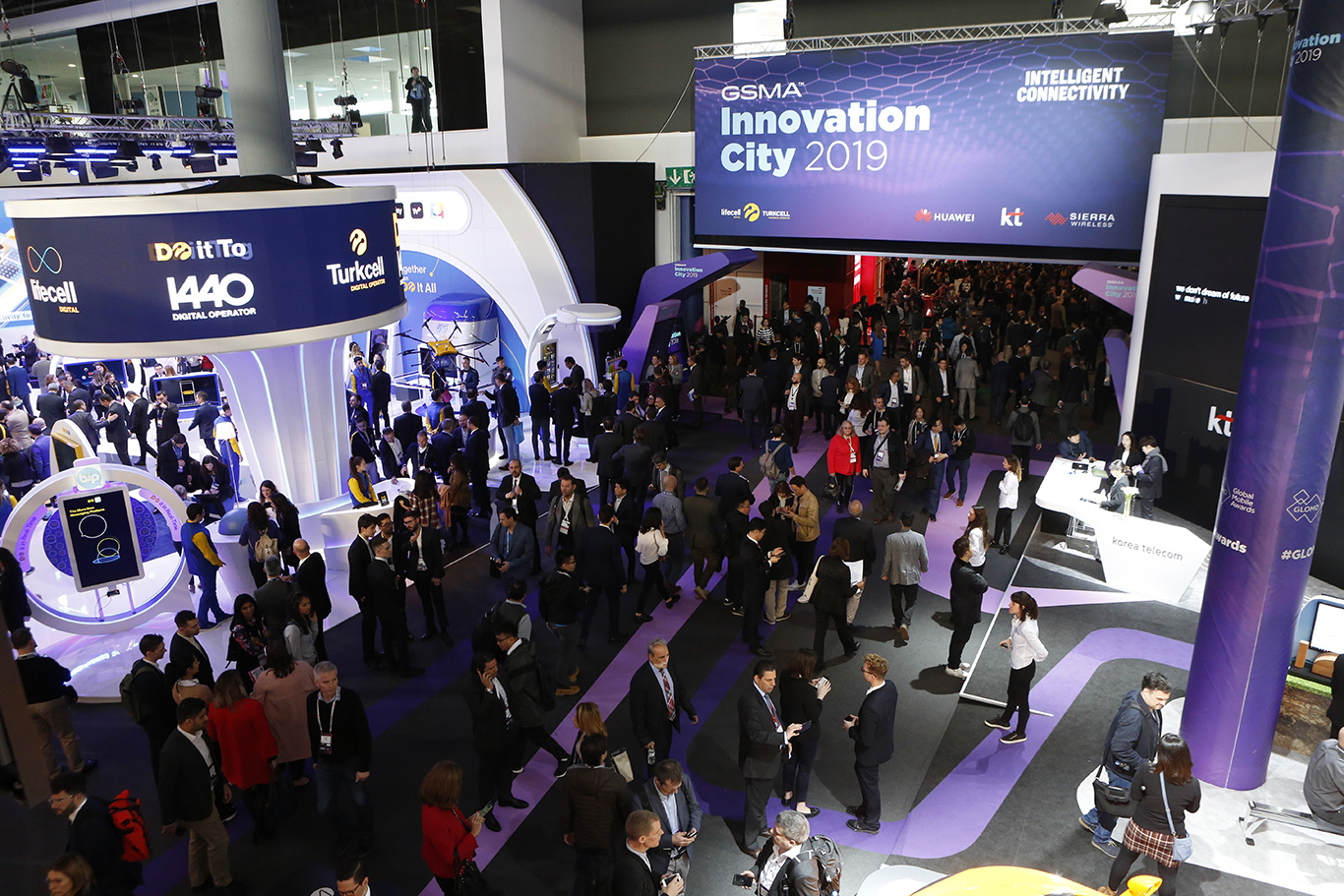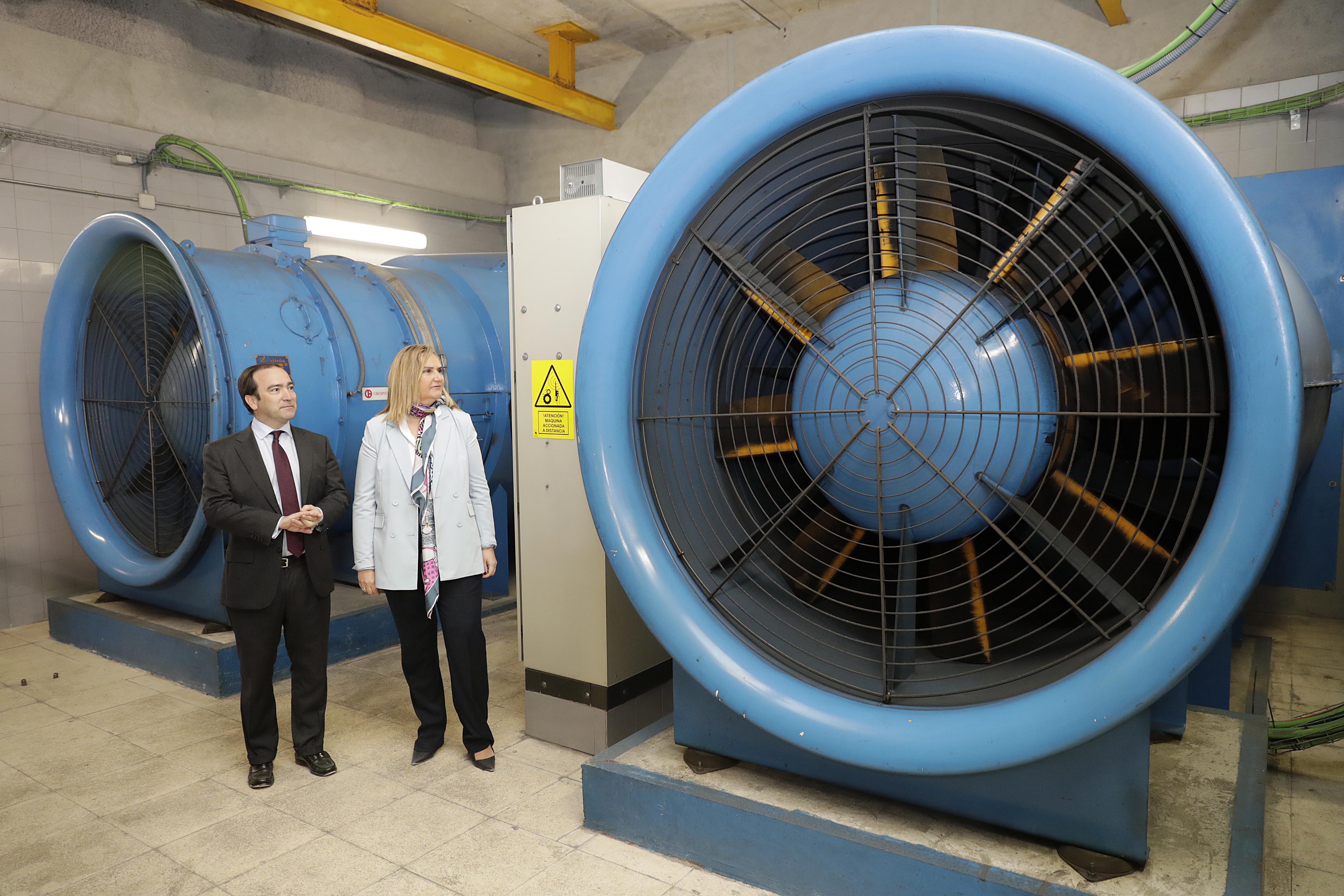
Photo: E5A1590
News round-up from Mobile World Congress
04 March 2019
by Jonathan Andrews
Madrid’s metro reduces CO2 emissions with artificial intelligence
Metro de Madrid has implemented a self-learning AI-based ventilation system that has reduced its energy costs for ventilation by 25 percent and cut CO2 emissions by 1,800 tonnes annually.
Developed by Accenture, the AI-based system works across the network’s entire 294 kilometres of track and 301 stations. Metro de Madrid operates 891 ventilation fans. which were consuming as much as 80 gigawatt hours of energy.
The system deploys an optimisation algorithm that leverages data to explore all combinations of air temperature, station architecture, train frequency, passenger load and electricity price throughout the day. Likened to the workings of a beehive, the algorithm uses both historic and simulated data, factoring in outside and below ground temperatures for the forthcoming 72 hours.

“The sensors [including humidity and temperature] were already in place but we had to modify some things,” Robert Gimeno Feu, IX.0 Analytics Lead, Accenture Applied Intelligence, told Cities Today. “It’s in their control system, they had the infrastructure there, this is more of an added-on value capture.”
Gimeno added that in terms of data sources, it would be very similar in other cities, therefore making the model reusable.
“This behaviour is about self learning, and we try solutions around the ones that work,” he added. “That can be very easily translated to other cities, and not just metro systems.”
IBM and SEAT team up to build mobility app
Car manufacturer SEAT and technology company IBM are working to develop a mobile app that will provide users with a conversational interface to plan and optimise routes and suggest the most suitable modes of transport.
The ‘Mobility Advisor’ uses IBM Watson Assistant and can learn a user’s preferences and make personalised recommendations for how best to complete a journey. The company says it will help city residents make informed decisions about their daily transport options: from public transport, to carsharing, motosharing or bikesharing.
“At SEAT we are … working with innovative cities and technology companies to come up with solutions to make mobility easier and more efficient,” said Jordi Caus, SEAT’s Head of New Urban Mobility Concepts. “IBM is helping us to innovate new approaches to mobility that will transform our business strategy while improving the lives of people living in urban areas.”
Connected to the IBM Cloud, the app adapts to changing conditions by taking into account weather forecasts, traffic reports and things happening in the city that day. It can also incorporate the user’s appointments and historical data about previous choices in order to suggest the best modes of transport for each journey.
“With the roll-out of 5G networks in cities, the possibilities for transforming the driver experience are limitless,” said Juan Ramon Gutierrez Villar, Industry Solutions Leader, IBM Global Markets. “We are working with telecommunications companies and innovative manufacturers to provide the open technologies they need to deliver on this vision and create highly contextualised and personalised user experiences that work at lightning speed across multiple clouds and IT platforms.”






